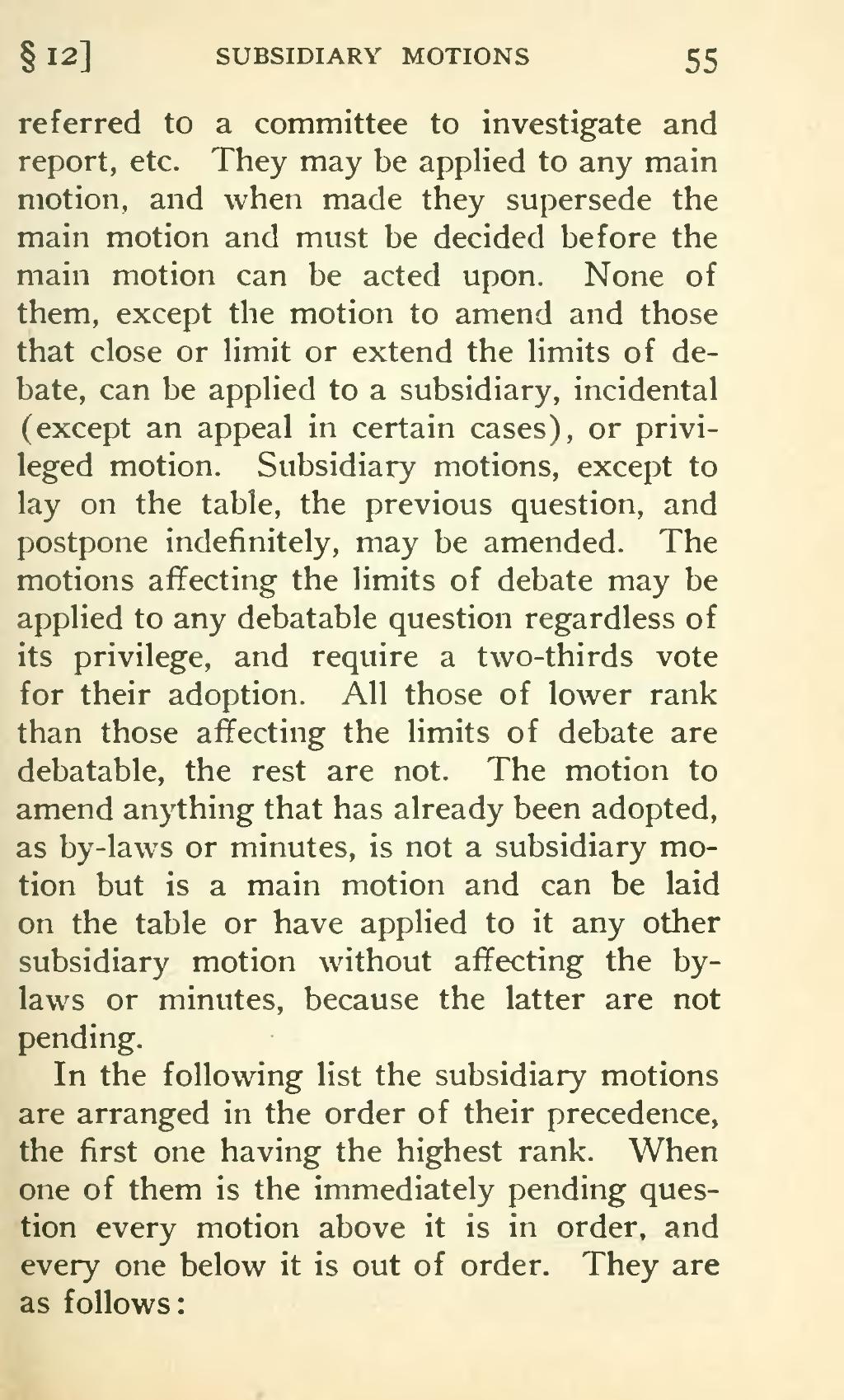referred to a committee to investigate and report, etc. They may be applied to any main motion, and when made they supersede the main motion and must be decided before the main motion can be acted upon. None of them, except the motion to amend and those that close or limit or extend the limits of debate, can be applied to a subsidiary, incidental (except an appeal in certain cases), or privileged motion. Subsidiary motions, except to lay on the table, the previous question, and postpone indefinitely, may be amended. The motions affecting the limits of debate may be applied to any debatable question regardless of its privilege, and require a two-thirds vote for their adoption. All those of lower rank than those affecting the limits of debate are debatable, the rest are not. The motion to amend anything that has already been adopted, as by-laws or minutes, is not a subsidiary motion but is a main motion and can be laid on the table or have applied to it any other subsidiary motion without affecting the by-laws or minutes, because the latter are not pending.
In the following list the subsidiary motions are arranged in the order of their precedence, the first one having the highest rank. When one of them is the immediately pending question every motion above it is in order, and every one below it is out of order. They are as follows:
